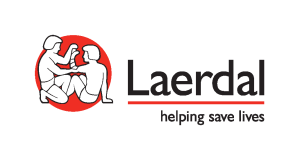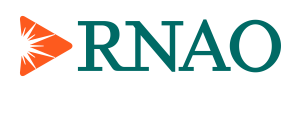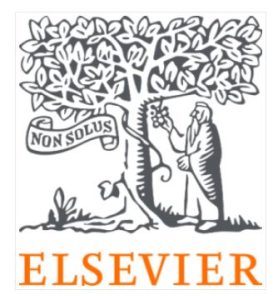Join nursing educators, researchers, and students at the 2026 CASN Biennial Canadian Nursing Education Conference.
The CASN Conference is the association’s biennial nursing education conference, held in the spring, where representatives from the nurse educator community gather to share innovative and creative research from across Canada and globally.
This is an opportunity to share your research, innovations, and best practices and network with colleagues from across the country and globally.
Theme: Rising to Responsibility: Educating the Nurses for the Future
Sub-themes:
- Addressing the TRC Calls to Action, Indigenization and Unlearning Colonialism – Accountability and Answerability.
This sub-theme centers on the urgent and ongoing responsibility of nursing education to respond meaningfully to the Truth and Reconciliation Commission (TRC) Calls to Action. It emphasizes the need for deep, systemic change through the processes of Indigenization, decolonization, and the unlearning of colonial practices within curricula, pedagogy, and institutional culture. Vital to this work is the principle of accountability not only to Indigenous communities, but also to students, educators, and the broader healthcare system. This sub-theme invites critical reflection on how nursing programs can move beyond symbolic gestures to implement tangible, measurable actions that honour Indigenous knowledge ways of knowing, support Indigenous learners, and foster cultural safety. It also explores how nursing educators enact their commitments, ensuring that reconciliation is not a passive ideal but an active, lived practice.
- Social Justice, Anti-racism and Anti-oppression: from Intention to Praxis.
This sub-theme challenges nursing education to move beyond aspirational statements and toward meaningful, sustained action in advancing social justice, anti-racism, and anti-oppression. It calls for a critical examination of how these principles are operationalized in curricula, institutional policies, faculty development, and student support systems. The focus is on transforming good intentions into praxis such as intentional, reflective, and justice-oriented practices that dismantle systemic barriers and foster inclusive learning environments. This sub-theme invites dialogue on strategies for embedding social justice, anti-racism, and anti-oppressive frameworks into all aspects of nursing education, ensuring that future nurses are equipped to provide culturally safe, equitable care and to advocate for social justice within and beyond the healthcare system.
- Preparing Nurses to be Change Makers: Integrating Advocacy, Policy Reform and Political Engagement System Change in Nursing Education.
This sub-theme explores how nursing education can promote system change by equipping nurses with the knowledge, skills, and confidence to lead transformative efforts in health care and beyond. It emphasizes the integration of advocacy, policy reform, and political engagement into curricula to prepare nurses as proactive change makers. By fostering critical thinking, civic responsibility, and leadership, this approach empowers nurses to challenge inequities, influence policy, and drive meaningful improvements in health systems and social structures.
- Accessible Nursing Education: Supporting Neurodiverse/Non-Typical Learners. Accessible nursing education is essential for cultivating a diverse and resilient healthcare workforce. This sub-theme focuses on strategies to better support neurodiverse/non-typical learners through intentional and equitable educational practices. It highlights the critical role of educators in creating accessible, supportive learning environments for both in class and clinical experiences that recognize and accommodate diverse needs. By fostering inclusive teaching models and building strong support networks, nursing programs can empower neurodiverse/non-typical students to thrive, ultimately contributing to a more representative and responsive healthcare system.
- Accessible Nursing Education: Supporting Rural/Remote Learners.
Accessible nursing education is essential for building health human resources capacity in rural/remote communities. This sub-theme focuses on strategies to better support learners from rural/remote communities through intentional and equitable educational practices. It highlights the critical role of educators in exploring innovative pedagogical approaches to deliver nursing programs without jeopardizing quality of education. By fostering accessible and supportive ‘de-centralized’ learning environments, nursing programs enable students to thrive regardless of geographic location, remain in their communities, and ultimately contribute to a more representative and responsive healthcare system.
- Preparing Future Nurses to Build Resilient Communities: Addressing Planetary Health, Climate Change, and Disaster and Emergency Response.
As the impacts of climate change and environmental degradation intensify, nurses are increasingly called upon to play a pivotal role in promoting planetary health and supporting community resilience. This sub-theme explores how nursing education can prepare future nurses to understand and respond to the complex interconnections between human health, ecological systems, and global crises. It emphasizes the integration of climate science, environmental justice, and disaster preparedness into nursing curricula, equipping students with the knowledge and skills to lead in emergency response, advocate for sustainable practices, and support vulnerable populations during environmental and public health emergencies.
- Innovations in Nursing Education Leadership and Administration in times of Uncertainty and Change.
In a period marked by rapid change, global crises, and evolving healthcare demands, transformative leadership in nursing education has never been more critical. This sub-theme explores how nurse educators and administrators can lead with vision, adaptability, and resilience to foster learning environments that thrive amid uncertainty. It emphasizes the importance of innovative pedagogies, inclusive decision-making, and responsive leadership strategies that support both faculty and students through disruption and transition. By cultivating leadership that is reflective, equity-driven, and future-focused, nursing education can not only withstand challenges but also emerge stronger, shaping a generation of nurses prepared to lead with courage and compassion in a complex world.
- Emerging Innovations, Technologies and Artificial Intelligence (AI) in Nursing Education.
The rapid evolution of technology is reshaping the landscape of nursing education, offering unprecedented opportunities to enhance teaching, learning, and clinical practice as well as significant challenges. This sub-theme explores the integration of emerging innovations, including simulation, virtual and augmented reality, digital learning platforms, and artificial intelligence (AI) into nursing curricula. It highlights how these tools can support personalized learning, improve clinical decision-making, and expand access to education. At the same time, it invites critical reflection on the ethical, pedagogical, and practical implications of technology use in nursing education. By embracing innovation while maintaining a human-centered approach, nursing education can prepare future nurses to thrive in a digitally advanced and data-driven healthcare environment.
- Upholding and Centering Community Health and Public Health in Nursing Education and Practice.
Community and public health are foundational to achieving health equity and improving population outcomes. This sub-theme emphasizes the critical role of nursing education in preparing nurses to lead and advocate within community and public health settings. It explores how nursing curricula centers the social determinants of health, health promotion, disease prevention, and culturally responsive care while equipping nursing students to counter misinformation and mistrust of the public health system. By integrating community-based learning, interprofessional collaboration, and public health frameworks, nursing programs can empower students to address complex health challenges at the population level.
- Other: Abstract does not fit any of the listed sub-themes yet meets the overall theme. This option provides space for innovative, interdisciplinary, or alternative abstracts that align with the overarching theme but do not clearly fit within a sub-theme. We welcome emerging ideas, approaches, and unique perspectives that contribute to the advancement of nursing education.
Dates: Monday, June 1 and Tuesday, June 2, 2026, with networking/exhibitors reception the evening of Sunday, May 31, 2026
Location: Hilton Mississauga/Meadowvale, 6750 Mississauga Road, Mississauga, Ontario, Canada L5N 2L3
Start time: 7:30 a.m. EST (Ontario/Quebec) both days
Keynote Speakers:
Monday - June 1, 2026
 Keynote Address Title: From Silence to Solidarity, Reflections on Two Decades of Decolonizing Nursing Education
Keynote Address Title: From Silence to Solidarity, Reflections on Two Decades of Decolonizing Nursing Education
Leanne Poitras Kelly, RN PhD, Metis/Cree cis-gendered woman originally from Saskatchewan’s Qu’appelle Valley, currently living and working on the unceded and occupied territory of the Coast Salish people of Vancouver Island. Leanne has worked in First Nations community and public health for over thirty years in various communities in Saskatchewan and British Columbia. Leanne is currently an Associate Teaching Professor with University of Victoria, School of Nursing. Her work is informed by strong relationships with local First Nations communities and Indigenous nurse mentors and has a strong focus on anti racist pedagogy, strength base Indigenous knowledges and intersectionality of complex community systems which influence health outcomes. Leanne has been involved in supporting nurse education throughout her career through community preceptorships, formal course work, both via distance and in-person classroom settings and immersive land based learning opportunities.
Presentation Description:
Since the release of the TRC Calls to Action in 2015, there has been a significant increase in anti-racist decolonizing education and incorporating Indigenous knowledge into curriculum. As a visibly identifiable Metis/Cree nurse, my entire career has been deeply embedded in the complexity of simultaneously experiencing racism while working to decolonize health care experiences from my role as a community health nurse and educator. Working within a racialized system means responding to the ebb and flow of the overarching social motivation and interest in change. In my career, I have witnessed the spectrum of responses to this work, from disdain, disinterest, curiosity, appropriation, benevolence, appreciation, community engagement and activism.
It is with all this in mind that I share my insights of implementing formal Indigenous-themed course development since 2005 via both distance and in-person delivery methods including land-based immersion. There is no panacea or short cut to equity and reconciliation. Transformational learning requires intention and thoughtful work not only on curriculum development but personal inventories. In this presentation, I will speak on the successes and challenges that I have had as a Metis / Cree nurse educator and my thoughts on nursing’s collective professional imperative to continue decolonizing efforts, including philosophical underpinnings and ethical considerations of including Indigenous Knowledges in our curriculums.
Tuesday - June 2, 2026
 Keynote Address Title: Nursing a Queer Identity, Together
Keynote Address Title: Nursing a Queer Identity, Together
Jess Crawford (they/them) is a white settler, perpetual guest with British and German ancestry, who has lived on several Treaty and stolen Indigenous Lands across so-called Canada, continually learning in relationship, from and with the traditional stewards of those territories. They are a queer, trans, non-binary, and neurodivergent Registered Nurse, educator, and researcher committed to equity, relational accountability, and joyful, liberatory futures. They graduated with a Bachelor of Science in Nursing (‘17) from Toronto Metropolitan University (George Brown College cohort). A proud University of Manitoba Master of Nursing graduate (‘25), their thesis work focused on gender affirming practices in nursing education and earned several awards/honours (including a Canadian Institutes of Health Research Master’s-level grant and Canadian Nurses Foundation Scholarship). A 2S/LGBTQ+ Health Hub alum, Jess continues to work in equity-focused research and teaches as a sessional instructor at the University of Victoria, where they will soon pursue a PhD in Nursing, weaving planetary health with queer and trans joy on the Land. Whether teaching, researching, or wandering (often after birds), Jess is dreaming of collective liberation—and warmly invites you to dream with them.
Presentation description:
Nursing education’s power for envisioning and reimagining is nourished by the diversity among us. Drawing on my experiences as a BScN student who was not yet publicly out, and later as a queer, non‑binary frontline RN, MN student, and now a nursing instructor, I call on nurse educators, scholars, and students to consider our collective responsibility to meaningfully cultivate diversity and belonging within our profession.
Rooted in my thesis research, Student and Faculty Perspectives of Gender Inclusive and Affirming Practices in Undergraduate Nursing Education, I share tendrils of how undergraduate nursing students and nurse educators experience learning and teaching related to gender-affirming care. These perspectives illuminate current gaps in nursing education and shine a light on our shared responsibility to grow safer, more accountable educational environments where new possibilities can take flight.
Speaking from deep care for this profession, nursing education shapes not only the lives of our patients, but also each individual nurse and nursing student, and the ecosystem of our professional collective. Together, we can shift towards solidarity for and with 2S/LGBTQ+ nurses and students among us, cultivating a culture of care, grounded in humility, accountability, and togetherness.
Through a chronology of one white queer settler nurse’s career, I invite you to imagine how we might nurture a “queerer” nursing identity – one that challenges power and norms, moving beyond merely inclusivity towards fully embracing diversity as the fertile soil for nursing excellence.
Come: Listen, fidget, reflect, learn, and be uncomfortable! Together, we can rise to our responsibility and nurse a queerer, more courageous collective identity into full bloom, letting our profession spread its wings like never before.
Closing Keynote Address
 Closing Keynote Address Title: Layers of Possibilities: Reimagining Nursing Education
Closing Keynote Address Title: Layers of Possibilities: Reimagining Nursing Education
Anne-Laurie Beaubrun is a Faculty Lecturer at McGill’s Ingram School of Nursing (ISoN) and currently serves as the Assistant Program Director (APD) for the Bachelor of Nursing Integrated Online Program. Previously, she served as APD for the School’s Satoko Shibata Clinical Laboratories, facilitating clinical skills education. She contributes to curriculum, student and faculty experience, and program coordination, supporting inclusive and equitable nursing education. She holds a Bachelor’s degree in Nursing from the University of Sherbrooke and a Master’s degree in Education from the University of Ottawa. Her master’s major research paper employed an art-based approach as a method of inquiry and reflection, which she is currently working toward integrating into her teaching. Her clinical background includes pediatric nursing and postpartum community home care. In 2014, she received the Innovation Recognition Award for her involvement in a school-based community engagement initiative.
Anne-Laurie is from Haiti, often called la perle des Antilles. This heritage informs her values and commitment to relational, community-centred approaches in nursing education and practice. Her social justice engagement spans academic, municipal, and national levels. She is an active collaborator with ISoN’s Office of Social Accountability in Nursing. She is a member of the McGill Faculty of Medicine and Health Science’s Health Professions Education Community Engagement and Belonging Committee, and a member of the Vivre Ensemble Advisory Committee for the city of Repentigny. At the national level, she is a member and former Secretary of the CASN Social Justice and Anti-Racism Interest Group.
Presentation description:
When I reflect on nursing education, I see knowledge, practice, and values come together like layers in a collage, carefully assembled over time, each contributing to the whole. Rooted in its history yet responsive to the present, nursing education evolves alongside an ever-changing world. How might we shape it for the future? What new layers are needed to acknowledge where we have been while responsibly preparing what is yet to come? What masterpiece do we hope to create for nurses and the communities they work alongside?
This presentation explores ways to intentionally integrate social justice—encompassing anti-oppression, decolonization, and advocacy—across multiple levels of nursing education, creating learning experiences that cultivate compassion, authenticity, humility, integrity, reflective practice, and understanding of diverse community realities, while promoting true and sustainable systemic change.
Drawing on research and professional experience, and considering intersecting identities and positionality, this presentation explores how social justice serves as a foundational layer in preparing nurses for contemporary practice. By embedding social justice as a core value, educators foster learning that is inclusive, reflective, and responsive to challenging social contexts. Attendees will gain insight into how social justice can be thoughtfully and creatively integrated throughout nursing education, including teaching, leadership, collaboration with students, colleagues, and community partners to inspire advocacy, relational practice, and equity-focused approaches.
This perspective encourages educators and students to critically examine assumptions, power dynamics, and privileges, consider multiple perspectives, and develop accountable practices that extend beyond the classroom into clinical settings. Integrating social justice in nursing education is no longer aspirational—it requires action now more than ever, as rising to responsibility means moving beyond contemplation into deliberate, tangible steps that shape the future of nursing and the communities we partner with.
Call for Abstracts:
The call for abstracts is now closed and are being reviewed. You will be contacted via email by late February with the abstract decision.
Presenters with accepted abstracts must register and pay full conference fees by Thursday, March 12, 2026, to reserve their place in the program.
Frequently asked questions:
Frequently Asked Questions for Abstract Presenters for the 2026 CASN Conference
- Are there funds available from CASN to assist students to cover expenses to attend the conference?
There are no funds available for students. However, CASN offers a discounted student rate for registration. The student rates are listed on the conference webpage: https://www.casn.ca/2024/11/the-casn-biennial-canadian-nursing-education-conference-2026/
Students may wish to check if there are funds available at their university/college or through their faculty/department or thesis supervisor. As well, students may check if there are any funding opportunities through the Canadian Nurses Foundation, as they offer scholarships for nursing students. Website is: https://cnf-fiic.ca/scholarships/
- Are there any draws or contest available to assist students in covering the conference registration fee? (time sensitive)
Thanks to a generous faculty donation, CASN is giving away 4 FREE registrations for students who are enrolled in a Canadian nursing program at a CASN member school to attend the CASN Biennial Canadian Nursing Education Conference in Mississauga, Ontario June 1-2, 2026!
-
- Open to any nursing students enrolled in nursing undergraduate or graduate program in Canada at a CASN member school
- Proof of enrollment required if selected
- Winners will get a chance to meet the donor at the conference
Enter now for your chance to win:
https://casn.ca1.qualtrics.com/jfe/form/SV_3RfTITzqRFu6XVc
Contest will end on Wednesday, February 11, 2026.
- Are there funds available from CASN to assist any other attendees to cover expenses to attend the conference?
There are no funds available for attendees. Please check if there are professional development funds or travel funds available at your institution/university/college.
- When I sent my abstract, I requested to have an in-person presentation. I no longer can attend in person. Is it possible to switch my presentation to be virtual?
This option may be available only upon your agreement to convert your presentation to an e-poster format. Should you wish to request this change, please contact Jordan Potter (jpotter@casn.ca) or Roxanne Nizio (rnizio@casn.ca). If you elect to proceed with a virtual e-poster, please note that your e-poster PDF and/or prerecorded presentation must be submitted by Tuesday, April 21, 2026, for inclusion on the conference’s virtual platform.
- When I sent my abstract, I requested to have an e-poster. I would now like to switch my poster to be in-person. Is this possible?
This may be possible. If there are in-person poster slots available after the Thursday, March 12, 2026 registration deadline, we may be able to switch your poster to be in-person. Please contact Jordan Potter (jpotter@casn.ca) or Roxanne Nizio (rnizio@casn.ca) with your request to switch.
- If I am doing an in-person presentation, do I need to register to attend in-person and pay the in-person conference fee?
Yes. You must register by Thursday, March 12, 2026 to secure your presentation slot.
- If I am doing an e-poster, can I register to attend virtually and pay the virtual conference fee?
Yes. You must register by Thursday, March 12, 2026 to secure your presentation slot.
- If I register by Thursday, March 12, 2026, do I need to do anything else to secure my presentation spot?
No. No further action is needed. Once you register, your presentation slot is secured.
- Why did I not get accepted for the presentation format I had requested?
Due to capacity limits for in-person presentations, some presentations were switched; e.g. from an oral presentation to a poster presentation, or from a panel/symposium presentation to an oral presentation. If any additional slots become available, you will be contacted to move your presentation back to the original format you requested.
- Are there discounted rates for retired or Indigenous presenters?
No. However, if the presenter is affiliated with and/or presenting with an individual from a CASN member school, they are permitted to pay the discounted CASN member school conference rate.
- For my panel/symposium presentation, not all my team is able to register to attend and present. Is this okay?
You must have a minimum of three (3) individuals from your team to register to attend and present. Please inform Jordan Potter (jpotter@casn.ca) and Roxanne Nizio (rnizio@casn.ca) which team members will be registering and presenting.
- Is it possible to have a hybrid presentation? i.e. some presenters on my team present in person and others present virtually?
No. The breakout rooms do not have this capacity. However, the team members not attending in person may pre-record a video that can be embedded within your PowerPoint presentation. If you plan to do this, please inform Jordan Potter (jpotter@casn.ca) and Roxanne Nizio (rnizio@casn.ca) as soon as possible. You will be sent a link to upload your PowerPoint presentation prior to the conference, and the conference audio/video team will test your presentation in advance to ensure that it is working.
- When will I know my exact presentation time? (for in-person presentations)
Your in-person presentation date and time will be provided after the March 12, 2026 registration deadline for presenters.
- Due to my travel schedule or other conflict, I can only present on a certain day/time (for in-person presentations). What should I do?
Please provide your availability details to Jordan Potter (jpotter@casn.ca) and Roxanne Nizio (rnizio@casn.ca) by the March 12, 2026 registration deadline. We will do our best to accommodate your availability when scheduling your presentation.
Registration Information:
https://events.myconferencesuite.com/The_CASN_2026_Biennial_Conference/reg/landing
Registration deadline:
- Presenters with accepted abstracts must register and pay full conference fees by Thursday, March 12, 2026, to reserve their place in the program.
- Registration deadline for non-presenters is Sunday, April 19, 2026; however, late registrations will be accepted until May 3, 2026.
Registration fees:
In Person Registration Fees
All registration fees are in Canadian dollars
In person registration fee includes:
- Networking/exhibitors reception on Sunday evening, May 31, 2026, which includes appetizers and one complimentary non-alcoholic drink ticket
- Breakfast, lunch, and coffee breaks on both days (June 1-2, 2026)
- Access to the conference app
- Access to the conference platform to view e-posters
Any other expenses related to the conference are the responsibility of the registrants.
Note: Out of consideration for the presenters and audience and potentially sensitive topics being presented that may not be suitable for children, children are not permitted to attend the conference.
Nurses registered in Québec (Ordre des infirmières et infirmiers du Québec) may use this conference for unaccredited continuing education hours.
|
Individuals from CASN member schools |
Individuals from non-member schools |
Student |
| In person rate – early-
Bird (up to and including Sunday March 22/26) |
$650.00 |
$775.00 |
$395.00 |
| In person rate – regular (from Monday, March 23, 2026, to Sunday, April 19, 2026 inclusive) |
$750.00 |
$875.00 |
$495.00 |
| In person rate – late (from Monday, April 20, 2026, to Sunday, May 3, 2026 inclusive) |
$850.00 |
$975.00 |
$595.00 |
Virtual Registration Fees
All registration fees are in Canadian dollars
Intended for individuals whose abstract is accepted for an e-poster presentation but do not plan to attend the conference in person, or individuals who only wish to view the e-posters and live streaming of the keynote presentations.
Virtual Registration fee includes:
- Access to the virtual conference platform to view pre-recorded e-posters and live streaming of the keynote presentations (both days).
Access to the virtual conference platform will be available for six months post conference.
| Early-Bird rate (up to and including Sunday March 22/26): $75.00
|
Regular rate (from Monday, March 23, 2026, to Sunday, April 19, 2026 inclusive):
$150.00
|
Late rate (from Monday, April 20, 2026, to Sunday, May 3, 2026 inclusive):
$200.00
|
Cancellation Policy
- Registrations that are cancelled on or before Sunday, March 22, 2026 will be refunded minus a 15% administrative fee.
- Registrations that are cancelled between Monday, March 23, 2026, to Sunday, April 19, 2026, inclusive will be refunded minus a 25% administrative fee.
- There will be no refunds for cancellations on or after Monday, April 20, 2026, and for no-shows.
CASN reserves the right to cancel this conference for circumstances beyond its control.
Travel and Accommodation
Hotel Reservation Information
Book your hotel reservation by Friday, May 1, 2026, at 11:59 pm EDT (Ontario/Quebec) to secure the special CASN 2026 Biennial Conference guestroom rates starting at $209.00/night by reserving online: https://book.passkey.com/gt/CASN2026BiennialConference
Please note: This special conference rate is available for a limited number of contracted rooms and subject to availability at the time of booking. We encourage attendees to book early to secure the special rate.
If you would like to book a guestroom pre or post conference beyond the room block dates of May 28 to June 4, 2026, you must call the hotel to make reservations. Guestrooms and rates are subject to availability.
For reservations assistance, please call 1-905- 821-1981 and mention the “CASN 2026 Biennial Conference” guestroom block.
Travelling to the conference
Air Canada is offering a travel discount for conference attendees:
- For North America: 5% standard fares, 10% flex & up
- For International Travel: 10% on standard fares & up
Promotion Code: TD9TA8F1
To book a flight with your promotion code, access www.aircanada.com and enter your promotion code in the promotion box. The discount will be automatically calculated for you.
Applicable Rules:
- The booking is to be made to the following city: Toronto, Ontario (YYZ) Canada
- The travel period begins Sunday, May 24, 2026, and ends Tuesday, June 9, 2026.
- Travel is valid Monday, Tuesday, Wednesday, Thursday, Friday, Saturday, Sunday.
- The promotion code is intended for use by conference attendees and organizers and is not meant for distribution outside of authorized channels. Air Canada’s Terms and Conditions apply.
|
|
West Jet is offering is offering a travel discount for conference attendees:
To take advantage of this offer, you will need the discount code listed. Please visit www.westjet.com to make a booking online. Coupon Code: Guest web/Travel Agent web: 3Z9N9TX
Promo Code: Travel Agent GDS only: YBW65
Applicable Rules:
- The booking is to be made to the following city: Toronto, Ontario (YYZ) Canada
-
The travel period begins Sunday, May 24, 2026, and ends Tuesday, June 9, 2025, No discount will apply to Ultra Basic or Business class bookings.
*Basic fare class is excluded from discount. Discount codes are valid for travel on the dates indicated above. Percentage discount is applied to base fare. Taxes, fees and charges are extra. The base fare may be represented as Air Transportation Charges (excepting Other Air Transportation Charges) in the booking flow. Other air transportation charges, taxes, fees and charges are not discounted. Discount codes are intended for use by the event attendees and organizers only. Distribution to any outside third parties or unauthorized channel is prohibited. Discount can be used for a one-way or round-trip booking. Discount cannot be applied towards multi-city bookings. Only one discount code may be used per booking. Seasonal start and end dates may apply. No cash value. Discount only applies to flights marketed and operated wholly by WestJet, WestJet Encore, WestJet Link, and Delta flights marketed by WestJet via codeshare. It is not applicable when traveling with our other code-share, interline or other airline partners. New bookings only. Offer is limited and subject to availability. No cash value. Non-refundable and non-transferable. Discount cannot be used towards the purchase of a Member Exclusive fare or the purchase of a WestJet Vacations package. Discount cannot be combined with any other discount codes or companion voucher bookings. WestJet dollars, Travel Bank and gift cards cannot be used as a form of payment. Any changes or cancellations to discount code bookings must be made by calling 1-888-937-8538. If the booking is changed or cancelled, the discount will no longer apply. Other restrictions may apply and are subject to change at any time. WestJet’s fares, schedules and policies, and any and all equipment used in connection with the provision of the meetings and conventions travel services may be changed or terminated by WestJet at any time and for any reason, in each case without notice or liability. WestJet may terminate or reduce flights to any event city at any time and for any reason without notice or liability.
|
| Porter Airlines is proud to offer a up to 10% discount on available base fares (with the exception of the lowest class fare during a public seat sale) for travel to and from 2026 Canadian Nursing Education Conference. The discounted fares are available for booking from November 18, 2025 to May 30, 2026 and available for travel:
To: Toronto, Ontario (YTO): dates of travel from All Markets: May 29, 2026 – June 1, 2026
From: Toronto, Ontario (YTO) to All Markets: June 1, 2026 -June 4, 2026
Please book online at https://www.flyporter.com/en-ca/?promocode=CNEC26 or through your travel agent using promo code “CNEC26”
Porter Airlines is committed to effortless travel, onboard. We’ve put a lot of care into our service since our first flight in 2006, with a fresh smile for every flight. Our elevated all-economy service is designed around you, to be the best possible experience. And our planes are designed around the environment, to the highest standards, service, and amenities that enhance your journey, all delivered in style and comfort.
The promo code is intended for use by conference attendees and organizers. Porter’s fare rules and conditions apply. For any questions regarding Porter’s services or any pre-travel concerns, contact us at 1-888-619-8622. |
| VIA Rail Canada
VALID: May 26th 2026 to June 7th 2026
TERRIOTORY: From all stations throughout the VIA system to Toronto and return.
RESTRICTIONS: Fare applies to a maximum of two passengers per booking.
DISCOUNT: 10% off the best available fare in Economy, Economy Plus, Business, Business Plus, Sleeper class. “Subject to the conditions and restrictions of the fare plan to which the additional discount is being applied.”
EXCEPTION: Discount does not apply in any Escape fares and Prestige Class.
IDENTIFICATION: In the Add a discount code field, select Conference Fares and enter the code 15988. |
Sponsor/exhibitor information:
Sponsor/exhibitor package
The CASN Biennial Canadian Nursing Education Conference 2026 is Sponsored by:
Confirmed Sponsors:
Platinum Sponsor
| University of Calgary

|
School contact information:
|
Gold Sponsor
| Laerdal

|
https://laerdal.com/ca
Company representatives:
Bill Welch
National Sales Director, Canada
845-489-0116
Dave Grant
SimCapture Sales Specialist
416-302-6620
Tony Xu
Territory Manager
437-922-8082
Michael Bowman
Territory Manager
416-727-8213
|
Silver Sponsor
| RNAO

|
https://rnao.ca/
Association representative:
Harveer Punia
Implementation Science Manager
647-801-0022
|
Lanyard Sponsor
| Canadian Nurses Foundation

|
Foundation representative:
TBD
|
Bag Sponsor
| Elsevier Canada

|
https://www.elsevier.com/health/nurse-faculty
Company representatives:
Tamara Myers
Director, Nursing Content
314-447-8554
Roberta A. Spinosa-Millman
Executive Editor • ELS-Education Content
647-615-7895
Amy Levitt
Sales Director – Canada
365-292-0905
|
Confirmed Exhibitors:
| Canadian Nurses Foundation

|
Foundation representative:
TBD
|
| SafeMedicate

|
Company representatives:
Jody Huebert-Hamm
President and CEO, simMedicate, Inc.
The exclusive North American Distributor of safeMedicate
941-465-7229
Tammy Fraker, BSN, RN
safeMedicate Northern Sales Rep
239-357-5528
|
| CAN-Sim

|
Representatives:
Marian Luctkar-Flude, RN, PhD, CCSNE, FCNEI
Co-President CAN-Sim
613-533-6000 Ext. 77383
Jane Tyerman, RN, PhD, CCSNE
Co-President CAN-Sim
613-562-5800 ext. 8609
|
|
Intelligent Video Solutions

|
Company representative:
John Fernandes
Regional Director
262-246-2801
|
|
NurseAchieve

|
Company representative:
Naissan Vahman
CEO
647-994-5539
|
|
Pocket Nurse

|
|
| University of Calgary

|
School contact information:
|
| Elsevier Canada

|
https://www.elsevier.com/health/nurse-faculty
Company representatives:
Tamara Myers
Director, Nursing Content
314-447-8554
Roberta A. Spinosa-Millman
Executive Editor • ELS-Education Content
647-615-7895
Amy Levitt
Sales Director – Canada
365-292-0905
|
| Canadian Nurses Association

|
https://www.cna-aiic.ca/home
Association representatives:
Valerie Grdisa, RN, PhD | inf. aut., Ph. D.
Chief Executive Officer | Directrice générale
613-237-2133 Ext. 225 | 1-800-361-8404
Representative:
TBD
|
| Laerdal

|
https://laerdal.com/ca
Company representatives:
Bill Welch
National Sales Director, Canada
845-489-0116
Dave Grant
SimCapture Sales Specialist
416-302-6620
Tony Xu
Territory Manager
437-922-8082
Michael Bowman
Territory Manager
416-727-8213
|
| RNAO

|
https://rnao.ca/
Association representative:
Harveer Punia
Implementation Science Manager
647-801-0022
|
Contact information: For more information or if you have questions, please contact Roxanne Nizio, Events & Projects Coordinator at rnizio@casn.ca or Jordan Potter Events and Operations Assistant jpotter@casn.ca
 REGISTER
REGISTER
 Keynote Address Title: From Silence to Solidarity, Reflections on Two Decades of Decolonizing Nursing Education
Keynote Address Title: From Silence to Solidarity, Reflections on Two Decades of Decolonizing Nursing Education Keynote Address Title: Nursing a Queer Identity, Together
Keynote Address Title: Nursing a Queer Identity, Together Closing Keynote Address Title: Layers of Possibilities: Reimagining Nursing Education
Closing Keynote Address Title: Layers of Possibilities: Reimagining Nursing Education











